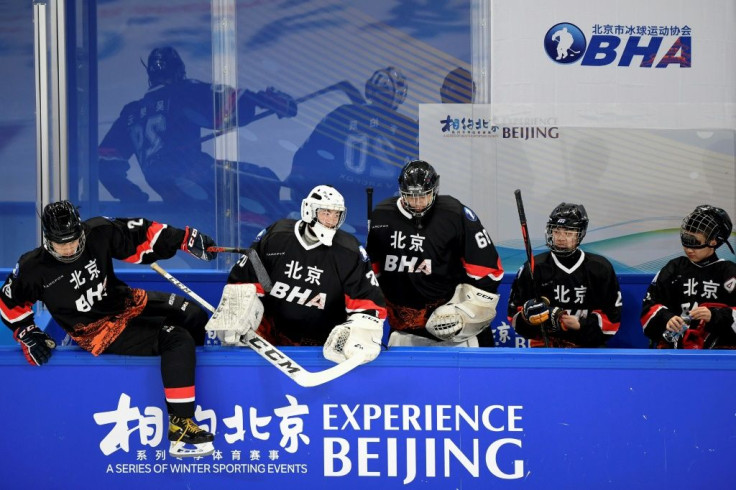White House Says US 'Not Discussing' Beijing Olympics Boycott
The White House said Wednesday that it is not in talks with its allies over a joint boycott of the Beijing Winter Olympics, amid Western concerns over Chinese human rights violations in Xinjiang and Hong Kong.
Concerns over a possible multi-country snub of the 2022 Olympic Games rose after a US State Department official said Tuesday that Washington wished to discuss such a move.
But after strong pushback from China and the United States Olympic and Paralympic Committee (USOPC), the White House said nothing was currently in the works.
"We have not discussed and are not discussing any joint boycott with allies and partners," said President Joe Biden's press secretary, Jen Psaki.
China is facing global scrutiny over a range of issues, notably the mass internment and other repression of Uyghur Muslims in the western region of Xinjiang, which the United States has said amounts to genocide.
It is also under pressure for its clampdown in the former British colony of Hong Kong, jailing members of the political opposition.
In the US Congress, some Republican lawmakers have clamored for the United States to pull out of the Beijing Winter Games, which are scheduled to begin on February 4 next year, six months after the summer Tokyo Olympics.
Former secretary of state Mike Pompeo and former United Nations ambassador Nikki Haley have both supported the move.
In addition, a coalition of 180 rights organizations has also called for a boycott.
Biden's young administration has made clear its willingness to challenge what it sees as China's bad behavior on the world stage, from human rights to trade to defense.

On Tuesday, State Department spokesman Ned Price was asked if the United States would consider a joint boycott with allies and said it was "something that we certainly wish to discuss."
But he later stressed on Twitter that Washington had nothing to announce regarding the Beijing games or a boycott.
"2022 remains a ways off, but we will continue to consult closely with allies and partners to define our common concerns and establish our shared approach" to China, he wrote.
China, which has rejected criticism of its human rights record, lashed out at the statement, accusing the United States of injecting politics into sports.
"I want to stress that politicizing sports goes against the spirit of the Olympic Charter, and damages the rights and interests of each country's athletes and the global Olympic cause," foreign ministry spokesman Zhao Lijian said.
Earlier Wednesday, USOPC president Susanne Lyons said US athletes should not be used as "political pawns," and that the organization firmly believed that boycotts are ineffective.
"We at the USOPC oppose athlete boycotts because they've been shown to negatively impact athletes while not effectively addressing global issues," Lyons told reporters.
"For our athletes, their only dream is to represent the USA and what we stand for on the international field of play."
Lyons acknowledged the human rights issues in China, but said that was best dealt with on a government level.
"We certainly do not want to minimize the serious human rights issues that are happening in China," Lyons said.
"But the US has many tools to constructively respond to these concerns, which we believe should be handled by government officials."
Last month, International Olympic Committee chief Thomas Bach expressed his opposition to a boycott, pointing to the 1980 US-led movement to skip the Moscow Olympics in the wake of the Soviet Union's invasion of Afghanistan.
"People must learn from history," Bach said. "The boycott of the Olympic Games has never achieved anything."




















